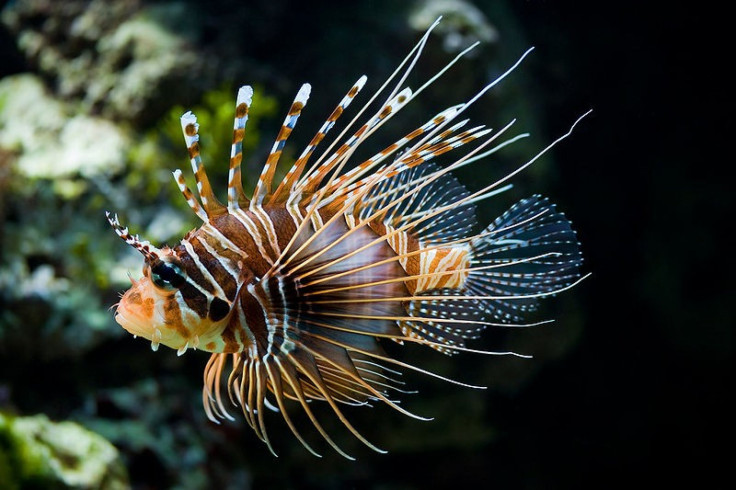The Week In Science: Lionfish Invasion, Ancient Underwater Forest, Killer Whale Mom

This past week brought a lot of exciting science stories: We saw X-ray videos of bats flying through the air, found a new blue planet and learned how astronauts wash their hair in space. But there’s always much more happening in the world of science than we can get to, so here’s a roundup of stuff we missed:
Global air pollution, whether as soot or smog, contributes to the premature deaths of more than 2 million adults every year, a new study estimates. [Los Angeles Times]
Glass sponge populations are booming in the Antarctic following the collapse of a 770-square-mile ice shelf almost 20 years ago. The cup-shaped creatures, which feed on plankton, were thought to grow very slowly, but there's new evidence they can grow quickly even in frigid waters. [Science Recorder]
Robotics company Boston Dynamics unveiled a robot, named Atlas, that walks on two legs. The hydraulically powered bipedal automaton is envisioned as a search-and-rescue operator that can go into situations where humans wouldn’t survive. Though Atlas’ walking ability is comparable to a 1-year-old’s right now, scientists have hopes that it will soon attain the grace and speed of a 2-year-old toddler. [New York Times]
Scuba divers found an ancient forest buried beneath ocean sediments off the coast of Alabama. The trees were locked away from view for more than 50,000 years, but Hurricane Katrina is thought to have uncovered it in 2005. The trees are so well preserved that when cut, they reportedly smell like fresh cypress sap. [Christian Science Monitor]
The lionfish invasion of the Atlantic Ocean is more serious than previously thought. A team of American and Canadian marine biologists found huge numbers of large lionfish as deep as 300 feet below the surface in parts of the Caribbean. These predatory Pacific fish were introduced to the Atlantic in the 1990s, wreak havoc among native fish and, incidentally, can be battered and fried as well as any red snapper. [Red Orbit]
The costs of climate change are even costlier in a world undergoing a recession, a new study claims. Though environmental issues often get pushed to the back burner during troubled economic times, some politicians argue that greenhouse gas emissions fall during that same time due to reduced consumption. But a father-son team says that slow economic growth means that people have much less wealth to cope with climate change impacts. [Guardian]
A killer whale reintroduced to her pod by humans has been spotted with a baby. Springer was found orphaned in Puget Sound in 2002, and scientists had worried that the separation may have hurt her chances of rejoining the group or having offspring. But thankfully, a traumatic childhood doesn’t seem to have hampered Springer too badly. [National Geographic]
© Copyright IBTimes 2024. All rights reserved.











